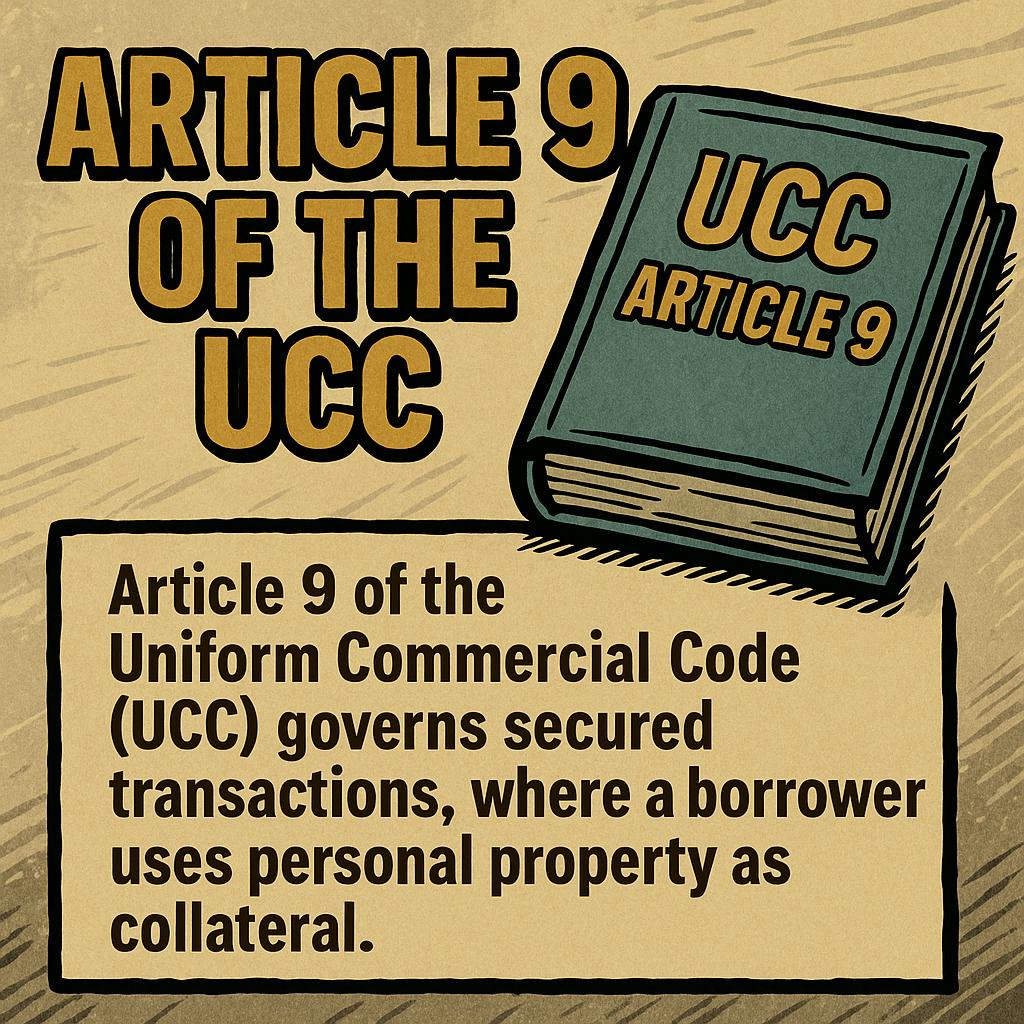
The Uniform Commercial Code (UCC)
“UCC: Keeping It Legit Coast to Coast”
Understanding the Uniform Commercial Code (UCC)
- The Uniform Commercial Code (UCC) is a standardized set of laws in the United States designed to govern commercial transactions. Adopted in whole or in part by all 50 states, the UCC ensures consistency and predictability for businesses engaging in sales, banking, and other commerce across state lines. It was first published in 1952 and has since become an essential legal framework for trade and finance.
- The UCC primarily focuses on transactions of goods, covering contracts, sales, leases, negotiable instruments, and secured transactions. One of its main purposes is to simplify and streamline commerce while promoting fair practices. For example, Article 2 of the UCC governs the sale of goods, including rules about offers, acceptance, delivery, and breach of contract.
- Article 9, address secured transactions, where borrowers offer collateral to secure loans, and is of particular importance in the realm of business finance.
- Businesses benefit from the UCC’s standardized rules because it reduces uncertainty when conducting interstate commerce. It ensures that laws governing contracts and obligations are uniform, whether a company operates in California, New York, Texas, or any other state.
- However, states can modify parts of the UCC to suit local laws, which occasionally creates slight variations. Therefore, businesses must still be cautious and consult legal experts to ensure compliance.
- In conclusion, the UCC plays a vital role in facilitating commerce by providing a clear, uniform legal structure that promotes trust, efficiency, and fairness in business transactions across the United States.
UCC ‘Deep Dive’
The Uniform Law Commission’s webpage https://uniformlaws.org/acts/ucc
on the Uniform Commercial Code (UCC) offers a comprehensive overview of this standardized set of laws governing commercial transactions across the United States including the UCC’s purpose and history and summaries of every UCC Article:
- Sales (Article 2)
- Leases (Article 2A)
- Negotiable Instruments (Article 3)
- Bank Deposits (Article 4)
- Funds Transfers (Article 4A)
- Letters of Credit (Article 5)
- Bulk Sales (Article 6)
- Documents of Title (Article 7)
- Investment Securities (Article 8)
- Secured Transactions (Article 9)
- Digital Assets (Article 12)
This resource serves as an authoritative guide for businesses and legal professionals interested in the structure and application of the UCC.
Of Particular Importance in the realm of Business Finance … Article 9

See: UCC Article 9 for additional information on Secured Transactions between Borrowers and Lenders

